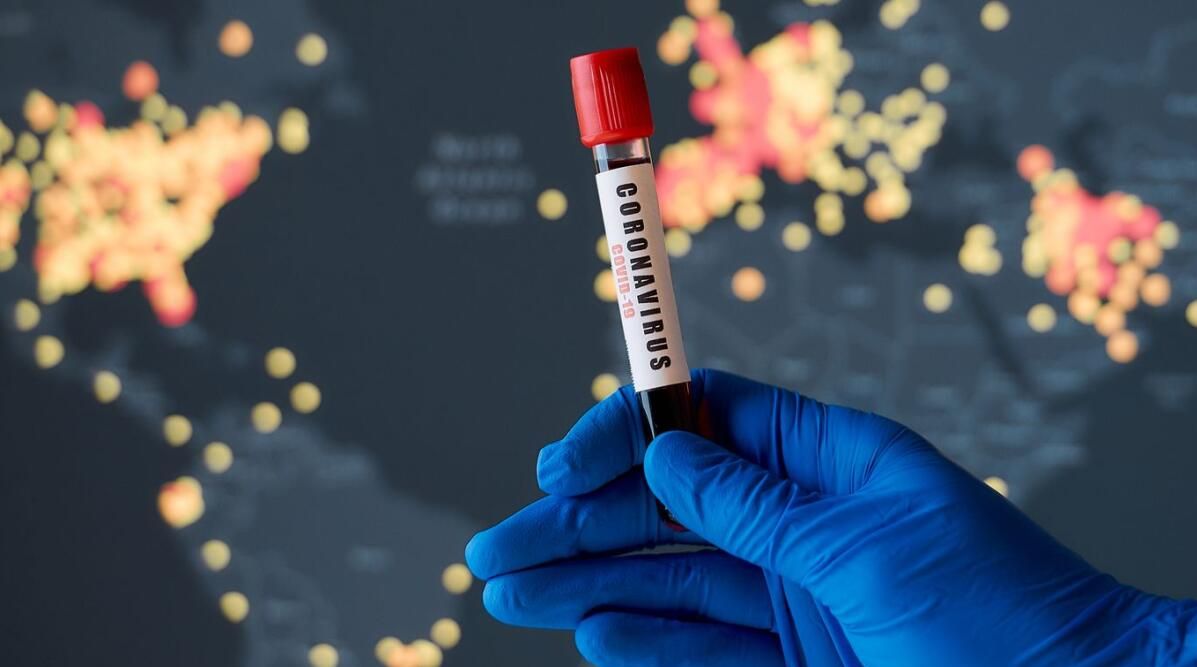A new COVID-19 mutant ‘XE’ has been discovered in the United Kingdom. According to the latest report by the World Health Organisation (WHO), the new mutant may be more transmissible than the BA.2 sublineage of the virus.
As per the report, XE is a recombinant of Omicron BA.1 and BA.2 variants of COVID-19.
The WHO noted that the XE recombinant (BA.1-BA.2), was first detected in the UK on January 19 and since then over 600 sequences have been reported and confirmed.
“Early-day estimates indicate a community growth rate advantage of ~10 percent as compared to BA.2, however this finding requires further confirmation," the global health agency added.
Furthermore, XE will belong to the Omicron variant until potential differences in transmission and disease characteristics such as severity are reported. The UK has reported 637 cases of XE so far and experts have warned that it has shown a variable growth rate.
In its new analysis, the UK Health Security Agency (UKHSA) examined three recombinants named XF, XE, and XD. The agency updated that of the three examined, XD and XF are recombinants of Delta and Omicron BA.1, while XE is a recombinant of Omicron BA.1 and BA.2.
Significantly, a recombinant variant takes place when an individual is infected with two or more variants at the same time. It results in a mixing of their genetic material within the patient’s body.
UKHSA pointed out that it is not an unusual occurrence, adding that various recombinant SARS-CoV-2 variants have been found during the battle against the pandemic.
“As with any other Coronavirus variant, the vast majority do not confer any advantage to the virus and die out relatively quickly,” it added.
Moreover, the UK has reported at least 38 cases of XF. Reportedly, no cases of XF have been found since mid-February and there is no current evidence of community transmission within the UK.
UKHSA further stated that XD has not been identified in the UK so far. Although about 49 cases have been reported globally, a majority of which were identified in France.
“A total of 637 cases of XE (recombinant of Omicron BA.1 and BA.2) have been confirmed in the UK so far. The earliest of these has a specimen date of January 19, 2022. There is currently insufficient evidence to draw conclusions about growth advantage or other properties of this variant,” it added.
Meanwhile, UKHSA has affirmed to continuously and closely monitor the developments in all recombinants.
Speaking about the development, Professor Susan Hopkins, Chief Medical Advisor at UKHSA, noted that recombinant variants are not an unusual occurrence, considering that several variants have been identified over the course of the pandemic.
"As with other kinds of variants, most will die off relatively quickly. XE has shown a variable growth rate and we cannot yet confirm whether it has a true growth advantage. So far there is not enough evidence to draw conclusions about transmissibility, severity or vaccine effectiveness,” Hopkins added.
Additionally, UKHSA projected BA.2 to account for approximately 93.7 percent of cases in England, with the highest prevalence in the South East (96.4 percent) and the lowest in the East Midlands (91.1 percent). It underlined that BA.2 is showing signs of substantial growth advantage. Since mid-February, the growth rate has settled at about 75 percent higher than other circulating Omicron lineages in England.
SOURCE: Khaleej Times
LINK: https://www.khaleejtimes.com/coronavirus/new-covid-19-variant-who-warns-of-virulent-xe-variant-risk
 AR
AR UR
UR
